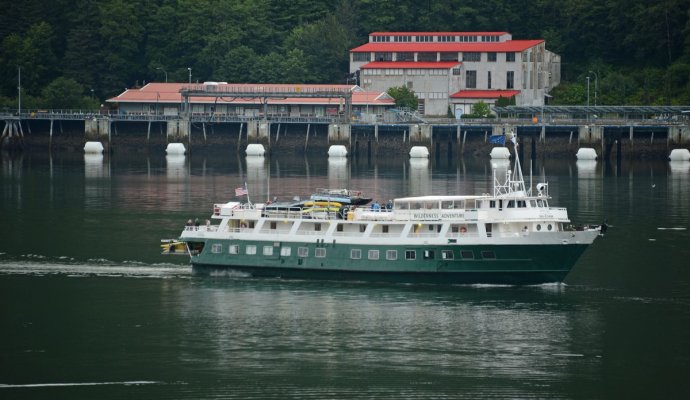I feel like I have to defend cruisers here. I don't think it's irrational to consider cruising again.
I personally contracted a case of Norovirus on a cruise. It was not pleasant, but less than 24 hours later I was fine. I know a guy who got a far worse illness at an all-inclusive shoreside resort. Airplanes are even more tightly packed. Buses, trains, hotels, concerts, movies, restaurants... they're all a risk. So what do you do, stay home?
Sure, when there's a pandemic running wild, you do. But at some point this too shall pass, and we'll all venture out into the world again. Maybe I'll take another cruise. I don't think that's really a huge risk.
CaptTom, as you stepped in to defend cruisers, I have to step in to comment on your post regarding airplane travel.
Cruise ships generally draw air from ships passageways, through particulate filters, similar in function to your household return line air filters, but different in design. These type of filters do absolutely NOTHING to filter out particles as small as virus strands. The reason they draw air from previously conditioned spaces is because that air has already been cooled/dehumidified by previous conditioning. It's cheaper to do that than to draw ambient air from outside which is generally at a higher temperature, and more laden with moisture.
So, to recap, Cruise ships recirculate their cabin (interior spaces) from previously conditioned (and used by crew/passengers) spaces. There is no separation of air, ie; cool/warm air blown into your cabin has come from air in the passageways, adjacent cabins, common areas, etc. So if the cabin next to you has pax infected with Norovirus, or Covid 19, your lungs get to filter out those virus particles . . . with potentially poor consequences to your health . . .
In a modern turbine power aircraft (jet aircraft in common lexicon), the cabin air is NOT REcirculated . . . not even once, it comes off of the compressor section of the engine, generally the last stage of compression prior to the combustion portion of the engine, it's commonly referred to as "P3 Air or Bleed Air". It is mixed with ambient air (from outside of the aircraft) to reach the desired pressure and temperature, then it is introduced into the cabin to cool the crew and passengers. In a non pressurized aircraft it then exits the non environmentally sealed cabin area back into the atmosphere. In a pressurized aircraft (which constitute most commercial aircraft we are familiar with) the air then exits through an outflow valve which regulates the overall cabin air pressure selected by the aircrew, generally a pressure equal to or lower than air pressure at 8000 feet msl. So, in this example, air is pressurized in the engine compressor section, is blended to the correct pressure and temperature, filtered, then introduced into the cabin, (where it is breathed by the crew & pax), and then exits the aircraft. Generally, the entire cabin air content is exchanged every 2 to 3 minutes (Boeing Aircraft, for example recirculate their cabin air roughly 20x per hour) . . . Cruise ships recirculate living space air over and over continuously, only exchanging for “new” outside air from the normal opening and closing of doors/port holes, etc.
So I ask you, if the intent of your post was to claim that traveling in an aircraft exposed passengers to the same negative health risks as passengers traveling in commercial aircraft, can you please explain, factually, exactly HOW that is the case?


I apologize for being so long winded (see what I did there?) but I thought it better to combat fiction with facts.


 :lol:
:lol:


